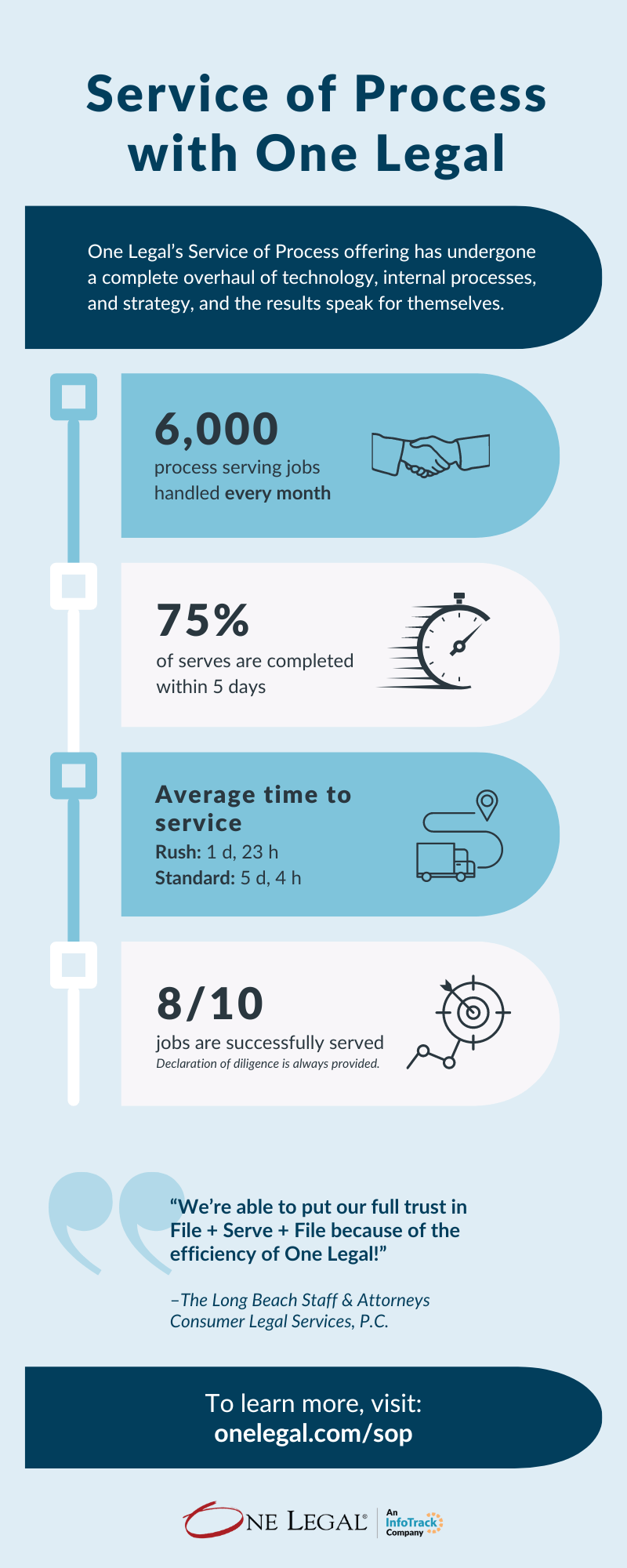Recognizing the Significance of Process Offering in Legal Procedures
Refine serving is a basic element of lawful procedures that ensures all events are informed of their responsibilities and rights. By assisting in the official shipment of crucial legal files, it promotes the concepts of due process and adds to the stability of the judicial system. The nuances of efficient procedure serving extend beyond simple delivery; they include legal needs and prospective effects of inappropriate solution. Recognizing these intricacies can considerably affect the outcomes of lawful disagreements, triggering a better exam of the practices that underpin this essential function.
Interpretation of Refine Serving
Process offering is an essential component of the legal system, specified as the formal shipment of lawful files to individuals associated with a lawsuit. This process ensures that all parties are properly educated of lawsuits being taken against them or to which they are an event. Generally, these files include summons, issues, subpoenas, and other court-related papers that need the recipient's attention and feedback.
The relevance of procedure offering lies in its role in promoting the principles of due procedure. It ensures that people have notice of lawful procedures, consequently giving them a possibility to respond or safeguard themselves. Appropriate solution of process is not just a step-by-step procedure; it is a basic aspect of ensuring justness and openness in the judicial system.
Process offering can be conducted by various people, including expert process-server, law enforcement police officers, and even attorneys, depending upon administrative guidelines. Each approach of solution has its very own requirements and methods, which are important to avoid delays or terminations within the lawful framework. Comprehending the interpretation and feature of procedure offering is vital for all stakeholders involved in lawful proceedings.

Legal Needs for Refine Offering
Lawful requirements for process offering are crucial to guarantee that the distribution of lawful documents adheres to established protocols and is recognized by the court. Each territory has certain legislations regulating just how and when records must be offered, which may include subpoenas, summonses, and problems.
Typically, procedure servers should be impartial 3rd parties that are not associated with the instance. They should additionally abide by state regulations pertaining to solution methods, which can consist of individual solution, replacement solution, or solution by mail. Individual solution entails providing papers straight to the recipient, while alternative solution permits shipment to an additional responsible individual at the recipient's home or workplace.
Additionally, process-server are usually needed to file an evidence of solution, a legal file that validates the shipment of papers, with the court. This paper includes information such as the date, time, and technique of solution, as well as the name of the individual served.

Role in the Justice System
A vital element of the justice system, process offering makes certain that people entailed in lawful process are effectively informed of actions taken versus them (Process Serving). This formal notification is vital for maintaining the concepts of due procedure, which mandates that parties have the opportunity to react to cases made versus them. Without efficient process serving, the legal system would certainly be made inadequate, as people might engage in actions without understanding of pending legal matters
Process-server serve a crucial function in protecting the integrity of the lawful process. They serve as neutral events, providing lawful papers such as summons, problems, and subpoenas, site link therefore fostering transparency and responsibility within the judicial structure. By making sure that all parties are educated, process serving aids to protect against any type of prospective unfair advantage, enabling equitable participation in lawful procedures.
Furthermore, the professionalism and trust of process web servers contributes to the general public's rely on the justice system. Their adherence to honest practices and lawful standards enhances the authenticity of the judicial procedure. Ultimately, effective process serving is crucial in advertising the rule of legislation and making sure that justice comes to all individuals associated with legal conflicts.
Effects of Improper Service
The repercussions of inappropriate solution can substantially undermine the integrity of legal proceedings. Incorrect solution can result in the defendant not being aware of the legal action against them, which may stop them from responding appropriately or presenting their defense.
Moreover, improper service can render court orders and judgments invalid, requiring the complainant to reboot the process, which can be both lengthy and financially difficult. It can likewise open up the door to obstacles and charms, as the offender may say that they were not read this article effectively alerted of the process, making complex the legal landscape better.
Ideal Practices for Effective Solution

Second, timing plays an important duty. Offering documents promptly can prevent hold-ups in lawful proceedings and make certain that all parties are alerted in a timely way. In addition, employing an expert process server can boost efficiency, as they are trained to navigate prospective challenges and ensure conformity with local laws.
Third, keeping accurate records of the service process is crucial. If disagreements occur relating to whether service was correctly implemented., recording the day, time, and fashion over here of service can offer essential evidence.
Verdict
In conclusion, procedure offering is an important element of legal procedures, making sure that all celebrations are appropriately informed and paid for the chance to respond. Adhering to lawful needs and ideal techniques not only maintains the principles of due process but additionally reinforces the stability of the justice system. The consequences of improper solution can cause substantial hold-ups and issues, highlighting the requirement for effective procedure offering in promoting justness and ease of access in lawful disagreements.
The subtleties of efficient process serving prolong past simple delivery; they incorporate lawful needs and possible repercussions of improper solution.Refine serving is an important component of the lawful system, defined as the official distribution of legal records to individuals involved in a court situation. Without effective procedure serving, the lawful system would be rendered inadequate, as individuals can engage in activities without recognition of pending legal matters.
Refine servers serve an important role in securing the integrity of the lawful process - Process Serving. The consequences of inappropriate service can lead to substantial delays and issues, highlighting the necessity for reliable process serving in advertising fairness and accessibility in legal disagreements